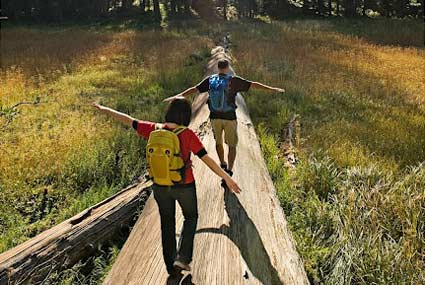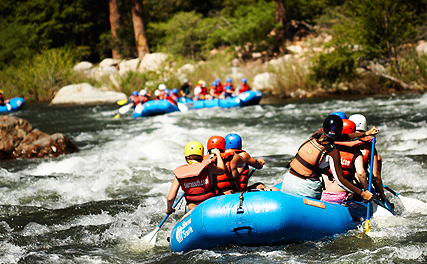Why nature?
In recent decades, children of all demographics have begun to spend less time outside. Tree climbing, exploring in the forest, and playing in streams are activities that have gradually been replaced by sedentary, indoor activities. Watching TV, playing video games, and browsing the web have become everyday activities in the lives of many children, while playing outside has become a rarity. As a result, many children are plagued by what Richard Louv has coined a “Nature Deficiency Disorder.”1 Experiences with nature are essential to one’s physical and emotional well being, and children who are deprived of such experiences are more likely to struggle with depression, attention disorders, and depression. Conversely, students who partake in outdoor activities such as hiking, climbing, surfing, etc. are found to have higher levels of self esteem, positive attitudes, and do better in school than children who do not spend time outside.2 Outdoor recreation has also been linked to reduced stress, improved self discipline, and the development of social skills among people of all ages. 1
The Issue
Outdoor experiences such as hiking, canoeing, rafting, and climbing tend to be hard to come by in cities, where natural areas are scarce. Children who grow up in urban areas are less likely to have access to forests, rivers, mountains, beaches, and other natural habitats than are children in rural and suburban areas.1 In fact, in one study, 56% of urban children reported never having spent time in a natural setting, indicating that the Nature Deficiency Disorder tends to disproportionately affect students in cities.2 Moreover, since much outdoor recreation requires the use of specialized gear or costly permits, these activities tend to be expensive, and lend themselves primarily to the wealthy. Therefore, in general, low income students in urban areas generally have less access to outdoor recreation than their suburban and rural counterparts.1
“EVERYONE DESERVES THE CHANCE TO LIVE THE LIFE THEY WANT FOR THEMSELVES.”
“John Keith Irwin P.H.D (father of John Irwin, co-founder of City Surf Project) was a lifelong San Francisco surfer who dedicated his life to working with disadvantaged communities. His vision and work live on through his son and now the City Surf Project.” 5
A step in the right direction
These problems are being addressed by various organizations throughout American cities. Many grassroots organizations strive to break down barriers that prevent urban youth from participating in outdoor recreation by providing free or low cost opportunities to explore the great outdoors. By introducing inner city children to activities such as rock climbing, surfing, hiking, and white water rafting, these organizations work to empower youth, generating the next generation of environmental stewards along the way.


